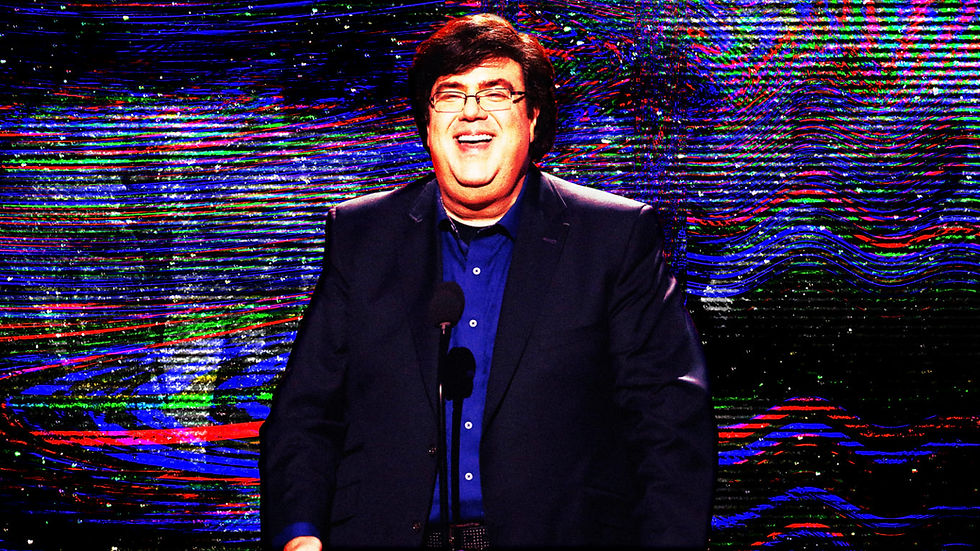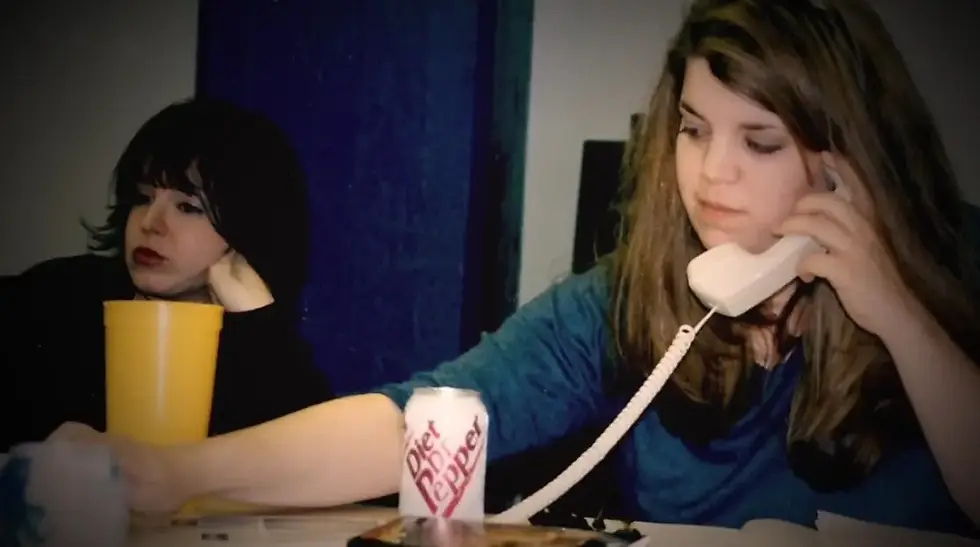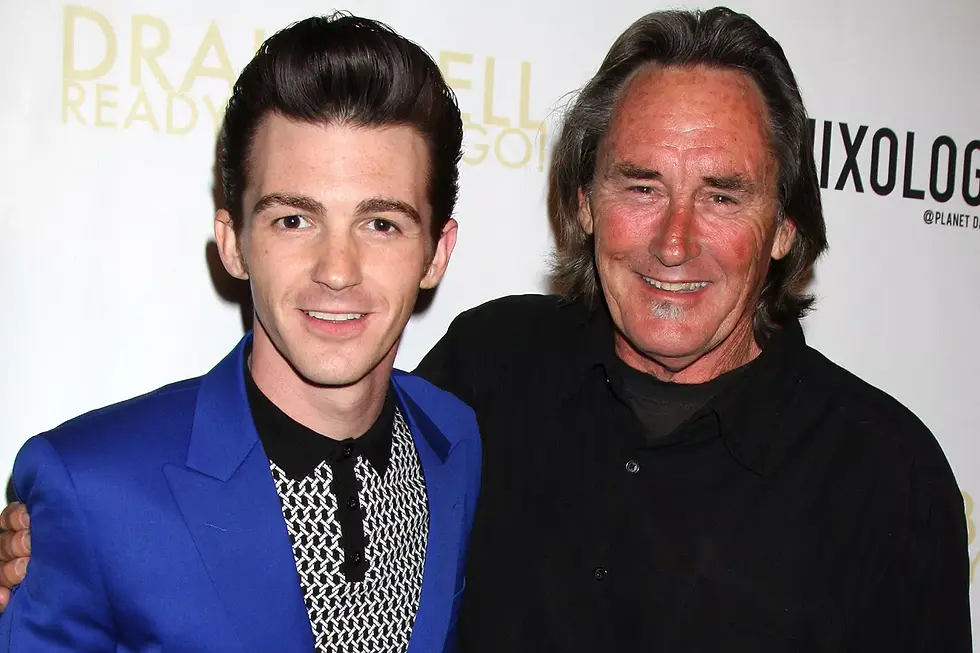The Culture of Silence
- jacqueline schaffer
- May 1, 2024
- 6 min read
How recent revelations in children’s entertainment are a reflection of societal standards in the workplace

With streaming platforms constantly releasing new movies and series, we tend to forget where our entertainment roots came from. TV channels like Disney, Cartoon Network, and Nickelodeon served as the foundation for our childhoods. They showed us that there was content that was truly made for kids, by kids. But when working with young actors, there are many boundaries that all members on set need to be wary of.
The recent release of the series Quiet on Set: The Dark Side of Kids TV showcases the horrific abuse child actors and Nickelodeon employees were enduring at the hands of notorious producer Dan Schnieder and other higher-ups. Schnieder is widely recognized for his shows Victorious, iCarly, The Amanda Show, Drake and Josh.
The series sparks a critical conversation about speaking out against those in charge. I believe this can be traced back to a pervasive culture of silence.
The culture of silence can be defined as the behavior of a group that, by unspoken agreement, does not acknowledge a particular subject.
I have found this theory to be so integral to this discussion because, in this context, it stems from the same place among both children and adults: fear.
The fear of losing your job, the fear of losing your fame, the fear of losing your income. In the first episode of Quiet on Set, Culture writer Scaachi Koul mentions how in this time of children’s TV starring actual children, parents were no longer the breadwinners of the household; their kids were.
The Kids
In order to address how deep the culture of silence runs on these sets, I’m breaking it down into three categories beginning at the lowest level: the kids.
These networks rose to popularity because they created shows for kids, by kids. But when working with children, there are strict regulations that must be in place. Certain laws require child actors to have at least one parent or guardian on set at all times and their working hours are far more limited than an adult.
However, with these popular shows, children were truly the stars. The cast was made up of nearly entirely children, featuring adults on occasion, including Schneider.

Schneider with star of iCarly, Miranda Cosgrove (Giant Freakin Robot)
According to the documentary, shows like Snick On-Air Dare had their stars often acting in humiliating and uncomfortable scenes. Young actors were forced to participate in borderline dangerous dares including being submerged in a vat of chili and eating 1000 “toenails.” On top of that, the child actors were subject to working several hours overtime.
Jennette McCurdy, one of the stars of the show iCarly, discusses Schnieder’s actions in her memoir I’m Glad My Mom Died. She only refers to his character as “the creator,” but it is easy to decipher his identity through context: stories of a ruthless producer who fires 6-year-old children on the spot, threatens workers on set and forces his underage stars to drink with him.
“The idea that I’ll have to do everything he wants is intimidating to me,” she wrote.
There is a stigma that has surrounded child actors for many years: they go crazy. We have seen it many times before; Amanda Bynes, Miley Cyrus, and Lindsay Lohnan. There is also the constant question that follows these sad tales: why?

Lindsay Lohan's arrests from 2007 to 2013 (CNN)
It seems as though we, as a society, have decided to ignore the upbringing of these child stars; the environments they grew up in, the people they were surrounded by, and the situations they encountered. We have agreed to turn a blind eye to the industry that led them down a troubling path and simply shake our heads in disapproval at who they have become.
“She was such a sweet girl. Too bad she got mixed up with the wrong crowd…”
This notion of silence is shared by the actors as well as the viewers. The documentary itself is being released over a decade after some of these shows have aired. There is a shared fear among these kids being instilled in them. A fear seeded by higher-ups.
The Staff
The culture of silence is a concept that often is brought up when it comes to actions in the workplace. Employees who fear losing their jobs refuse to speak out against discrimination or harassment, and the mutual agreement to simply ignore wrongdoings to ‘keep the peace.’
Christy Stratton and Jenny Kilgen were two writers who worked with Schnieder on The Amanda Show. They shared their experiences working with him and the rest of the writing team composed solely of men in the documentary.

Stratton (left) and Kilgen (right) (The Cinemaholic)
Stratton and Kilgen were both ecstatic to begin working with the Nickelodeon team, it was truly a dream job. However, they were told they would have to split a paycheck– something none of their male colleagues had to do.
After several months of working with Schnieder, their dreams-come-true quickly turned to living nightmares.
“I knew there was a right and wrong answer.”
Kilgen said in the doc. The workplace was not somewhere where creativity and imagination ran wild, it was a place where Schnieder ruled over all; and if you said something to get on his bad side, you were out.
Their superior referred to the women only as “the girls” and encouraged them to scream out explicits during work. If they refused, they faced termination.
The women knew they couldn’t complain about the abuse they were facing, it was expected of them to stay quiet and accept it. This was Nickelodeon after all, they should be grateful they got the job in the first place.
The Parents
One of the most difficult things to face is that while both the actors and staff were facing immense pressure, the parents of these actors were just as helpless as their kids.
Although the aforementioned law where parents had to be on set was in place, this was many of these kids' first jobs. The parents were just as inexperienced as their children and didn’t know what was right from wrong in a studio.
It’s so easy to look down on these parents, to think about what you would have done in that position. But these parents were not intentionally putting their children in danger.
Not only were these parents unaware of some of the horrors that were going down behind the scenes, but they were under the same pressure their kids were: to stay flexible and adaptable.
Just like the writers, for some of these kids, this was a dream job. A once in a lifetime opportunity. And who were these parents to take that away from their kid?
Drake Bell, star of Drake and Josh, was the victim of vocal coach Brian Peck when he was as young as 14 years old. Drake’s father, Joe Bell, was one of the parents who was typically on set and actually did call out Peck for developing an unusual relationship with his teen son.
Bell was “ostracized” on set for making these claims and made to feel guilty for even thinking that way (People). This was Similar to how other victims were treated in the cruel world of Schnieder.
You were always in the wrong, and it’s gross of you to assume anything otherwise is going on.
It was only years later, after Peck’s arrest, that Bell learned the lengths of the abuse his son was facing.

Drake Bell (left) with his father Joe (right) (People)
Tracey Brown, another mother on set, was also shunned for speaking out against the racial stereotypes producers assigned to her son. In a sketch from All That, her son Bryan Hearne was assigned the role of a boy selling Girl Scout cookies, but there was a very obvious tone to the punchline.
“They set up the scene like he was selling drugs,” Brown says in the docuseries. “And I was like, ‘Oh the Black kid gets to be the crack dealer?’”
Conclusion
Quiet on Set peels back the bright orange veneer they have plastered over Nickelodeon’s shady history for the past several decades. The culture of silence is a very real philosophy that can be applied to many realms of work and life and spans all ages.
I believe the story of all these individuals who suffered at the hands of Schneider and others is important to evaluate because it allows us to see how anyone can fall victim to the societal expectation of compliance and cooperation.
We need to speak out against inequity even at times when it may be considered defiant. No one person’s status should allow them to control any person's life.
Jacqueline Schaffer is an Online Editorial and Print Writer for Rowdy.




PAUTOTO
PAUTOTO
PAUTOTO
PAUTOTO
PAUTOTO
SUPTOGEL
SUPTOGEL
SUPTOGEL
SUPTOGEL
SUPTOGEL
BANTOGEL
BANTOGEL
BANTOGEL
BANTOGEL
BANTOGEL
GUATOGEL
GUATOGEL
GUATOGEL
GUATOGEL
GUATOGEL
LAMTOTO
LAMTOTO
LAMTOTO
LAMTOTO
LAMTOTO
LPG888
RAPTOTO
SlotGacorGuide
SlotGacorGuide
This article was exactly what I needed to read today. Your words are inspiring, and the information is incredibly useful. Thanks for sharing!
how many jobs are available in basic industries
ibomma telugu movies new 2025
cesur mining…
six mining…
advanced miners…
stainless steel…
万事达U卡办理 万事达U卡办理
VISA银联U卡办理 VISA银联U卡办理
U卡办理 U卡办理
Stainless Steel…
蜘蛛池搭建 蜘蛛池搭建
cesur mining…
six mining…
advanced miners…
stainless steel…
万事达U卡办理 万事达U卡办理
VISA银联U卡办理 VISA银联U卡办理
U卡办理 U卡办理
Stainless Steel…
蜘蛛池搭建 蜘蛛池搭建
cesur mining…
six mining…
advanced miners…
stainless steel…
万事达U卡办理 万事达U卡办理
VISA银联U卡办理 VISA银联U卡办理
U卡办理 U卡办理
Stainless Steel…
蜘蛛池搭建 蜘蛛池搭建